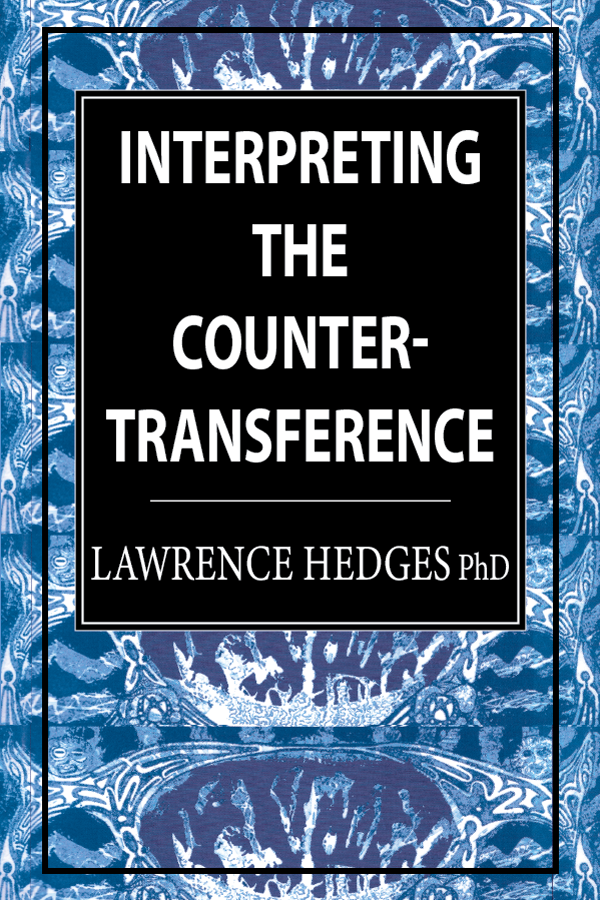
Interpreting the Countertransference
Publisher: Jason Aronson, Inc.
Please provide your name and email to get free downloads.
Downloaded 4120 times since
Interpreting the Countertransference organizes the varieties of listener (therapist) responsiveness along a developmental axis of human relatedness possibilities. He offers fresh alternatives to long-standing problems of countertransference responsiveness and provides specific ways for the professional listener to being systematically considering his or her emotional reactions to clients.
Hedges defines a paradigm shift of major proportions that characterizes psychoanalytic thought in the last two decades. A key idea among the rich offerings this book provides is that intense, persistent, and troubling listener-responsiveness can be considered as originating from a preverbal symbiotic level of relatedness expression that belongs to the speaker’s early life history. Through nonverbal emotional relatedness, the speaker in analysis communicates to his or her listener what Christopher Bollas has called “the unthought known.” It is the listener’s task to perceive and to being the joint process of articulating crucial formative and enduring patterns of experience from the speaker’s infantile past. In this undertaking the countertransference is shown by Hedges to be a key informer.
Hedges maintains that knowing how to interpret the countertransference is a critical new skill required for understanding all intense emotional relationships, especially those encountered in psychotherapy and psychoanalysis.
Reviews
“Hedges clearly and beautifully delineates the components and forms of countertransferences and explicates the techniques of carefully proffered countertransference-informed interventions. This significant paradigmatic shift is that countertransference and relatedness replace the older medical model of objectivity. Thus, the patient, now the ‘experiencing speaker,’ and the analyst, now the ‘experiencing listener,’ are inextricably bound together as a pair. The analyst’s countertransference is the quintessence of that experience and a most valuable contribution to the outcome for the treatment. Another paradigmatic shift is his view that all countertransferences, no matter how much they belong to the analyst, are unconsciously evoked by the patient who avails himself of the analyst’s real personality attributes in order to live out unconscious scenarios.”
James Grotstein, M.D.
“By shifting focus to process, forms of relatedness, patterns of engagement, and modes of exchange, Dr. Hedges captures and helps create a major new therapeutic paradigm. He systematically demonstrates how the therapist-listener can make use of his/her own feelings to understand the speaker and help the speaker see and ultimately change lifelong forms of relatedness. This exciting new consciousness extends what has gone before and is supported by a plethora of fascinatingly presented case material.”
Charles Coverdale, Ph.D.
“This book is more than a textbook. It is a powerful means for the psychotherapist to move himself into the world of the patient and to be committed to eternal learning.”
Rudolf Ekstein, Ph.D.
“In his book, Interpreting the Countertransference, Dr. Hedges extends the current understanding of countertransference into a new dimension. He accomplishes far more than that. He challenges the ‘well doctor-sick patient’ assumptions of current psychotherapy practice, and with a combination of passion and scholarly brilliance guides the reader through the most creative thinking of our time and into a new ‘self and other’ paradigm for doing psychotherapy.”
Virginia Wink Hilton, Ph.D.
Our staff has been up all night selecting the best new e-books to share. Will you send us a few bucks to keep the coffee flowing?


One comment on “Interpreting the Countertransference”
España:
In my opinion, it is an excellent book. Different from other books written on the same topic